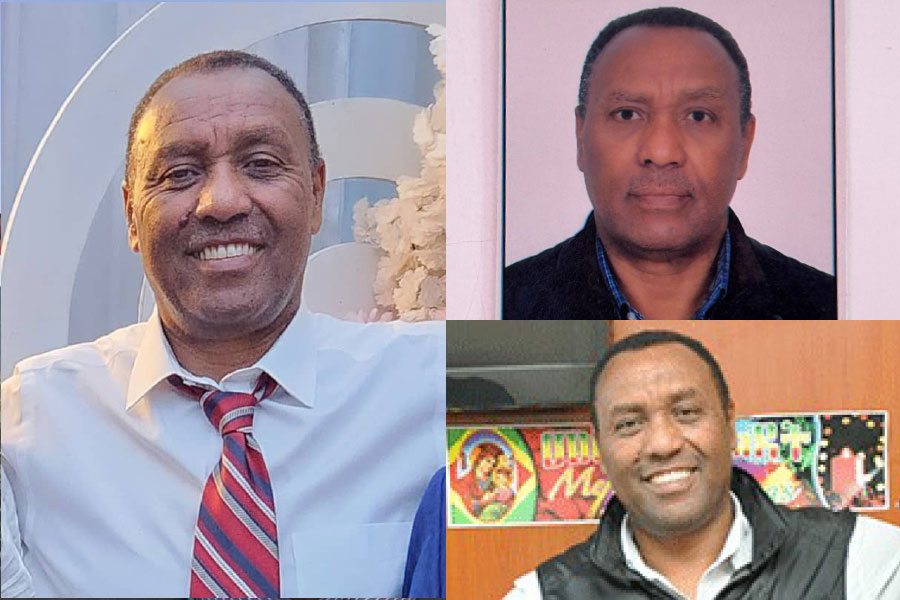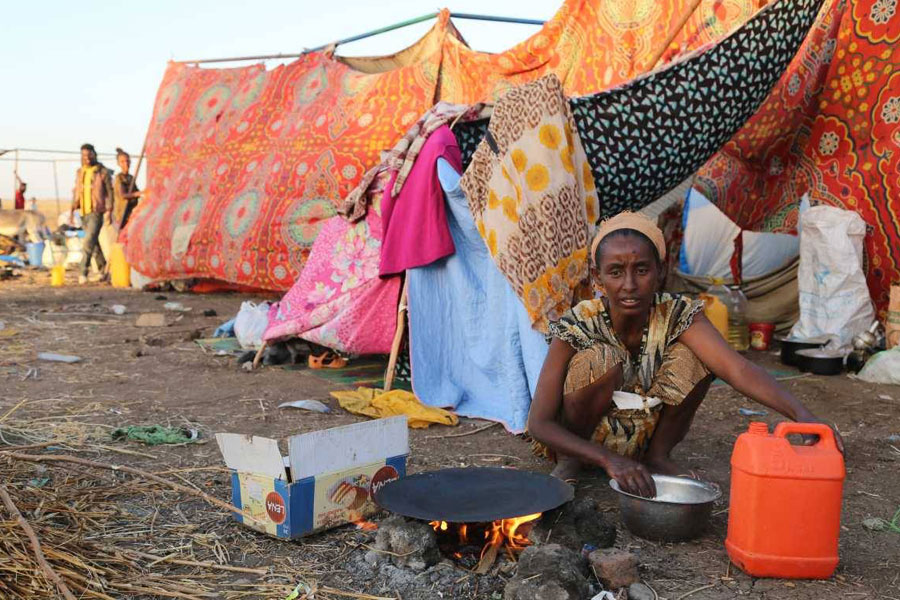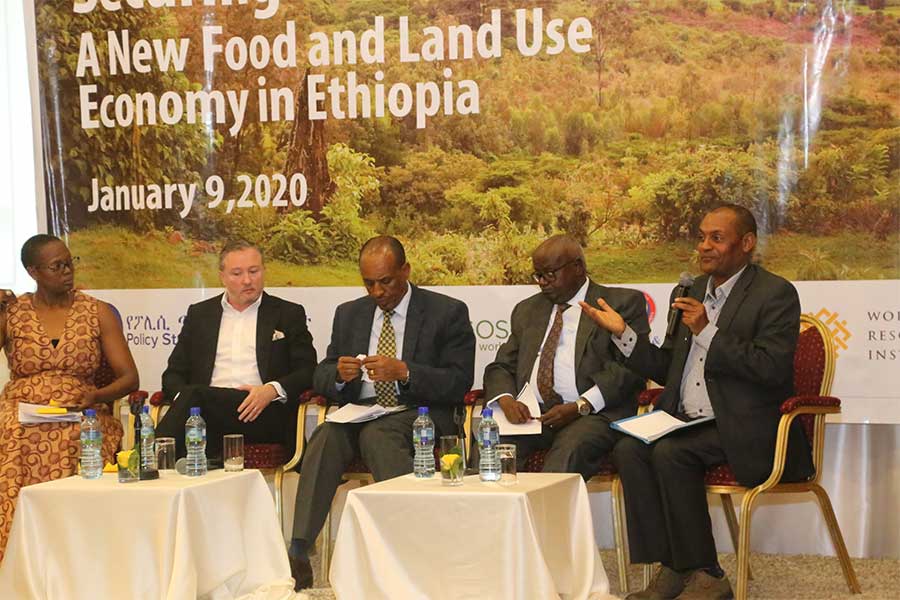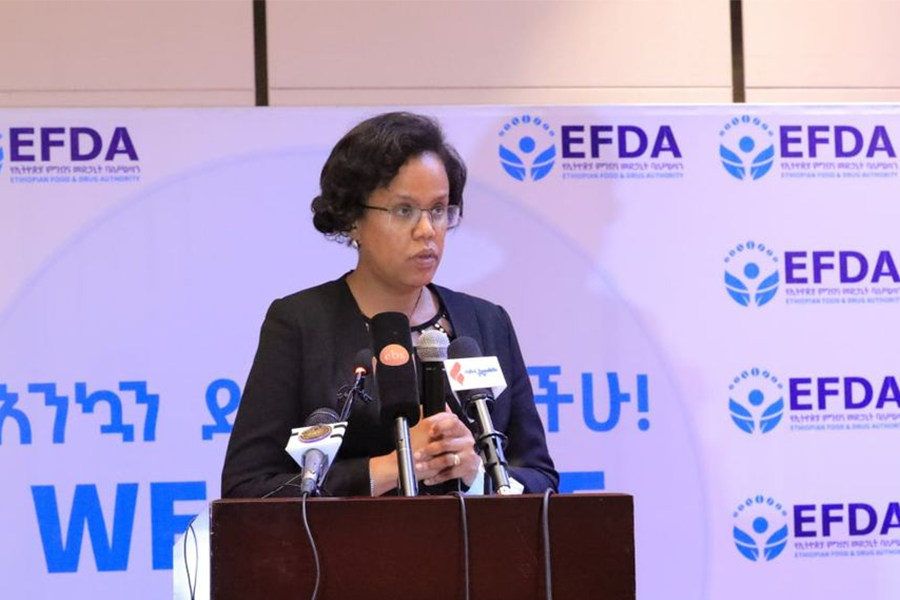
My Opinion | Dec 31,2022
Feb 8 , 2020
By Abebe Haile-Gabriel
Conflicts trigger a domino effect. They lead to food insecurity and malnutrition, which are also conflict multipliers, especially in fragile states, writes Abebe Haile-Gabriel, an assistant director-general and regional representative for Africa Food & Agriculture Organization (FAO) of the United Nations (FAO).
In a region beset with conflict, the uptick of numbers paint a grim foreboding. Hunger is on the rise again in Africa, reversing the gains and derailing the efforts made in the last few years.
Recent years brought recurrent conflicts in the region. In 2018 alone, there were over 90 conflicts in Africa, a quarter of such occurrences globally. Conflicts in 10 African countries left millions of people in need of urgent food assistance and hundreds of thousands to quickly flee their homes and involuntarily abandon their livelihoods.
Most of these livelihoods are dependent on agriculture and the emergence of conflict has life-changing and serious implications. For people who rely on agriculture, conflicts destroy food systems, decimate crops and livestock resources, and cause loss of assets and incomes. These trigger food insecurity, malnutrition and hunger.
People living in countries affected by conflict are more likely to be food insecure and malnourished. For some African countries, the prevalence of undernourishment is about two and a half times higher in countries affected by a protracted crisis than in other development contexts. Nutrition outcomes are also worse in conflict situations, where almost 122 million, or 75pc of stunted children, are under the age of five.
Additionally, conflicts harm national economies. Agriculture in Africa contributes a sizeable proportion of the gross domestic product (GDP), employs more than half of the total labour force, and provides livelihood incomes for smallholder farmers, who usually constitute approximately 80pc of the total population. When conflicts occur, agricultural activities are disrupted, resulting in massive youth unemployment, displacement, strife and discord.
Conflicts trigger a domino effect. They lead to food insecurity and malnutrition, which are also conflict multipliers, especially in fragile states. The relentless cycle goes unchecked if collective action is not in place.
The 2030 Agenda for Sustainable Development calls for a transformative approach pointing to improved collaboration on conflict prevention and resolution. The African Union Agenda 2063 likewise prioritizes peace and security to reposition Africa on a sustainable route of transformation and development.
The commitment of the African leadership to change course has been confirmed in the 2014 Malabo Declaration on “Accelerated Agricultural Growth and Transformation for Shared Prosperity and Improved Livelihoods” in the framework of the Comprehensive Africa Agriculture Development Programme (CAADP) agenda. The goal to ending hunger in Africa by 2025 stands out among the prominent commitments of the Malabo Declaration, stressing the notion that peace and stability are the prime preconditions to achieve this goal.
It is in this context that the African Union has selected the theme of the year 2020 to be “Silencing the Guns: Creating Conducive Conditions for Africa’s Development”. As a flagship project of the Agenda 2063, this initiative would have a greater impact in promoting peace and stability in Africa, with the goal of ending wars and civil conflicts, thereby achieving concrete development goals, including the eradication of hunger.
Institutions such as the FAO (which the author of this article is an assistant director-general and regional representative of) have a key role to play in supporting the Silencing the Guns Initiative. FAO is, for instance, poised to tap into the potential of agriculture to lift large numbers of the rural poor out of poverty, contributing to peace and security. Under flagships such as Hand-in-Hand initiative by the FAO, it is also possible to actively collaborate with member countries and development partners taking bold step toward achieving the SDG goals of eradicating poverty, hunger and malnutrition, through accelerating agricultural transformation and sustainable development.
Such initiatives offer opportunities to use the most advanced tools available, including advanced geospatial modelling and analytics, to improve targeting and to tailor policy interventions, innovation, finance, investment and institutional reform in a comprehensive approach.
On the margins of the AU Summit this year, high-level side events are also set to take place. One of these will be “Hand-in-Hand in Partnerships towards Maintaining Peace through Improved Food Security and Nutrition in Africa.” The other is the launch of the regional flagship publicationAfrica Regional Overview of Food Security and Nutrition,which reports on the food security situation in the continent as driven by conflicts and other factors such as climate shocks and economic slowdowns and downturns.
Such engagements will delve into the critical role of enhancing inclusive investments and innovative solutions to support resilient food and agriculture systems that would make sustainable peace possible, which in turn would be key to reversing the worsening trends of food insecurity and malnutrition in Africa.
PUBLISHED ON
Feb 08,2020 [ VOL
20 , NO
1032]


My Opinion | Dec 31,2022

Exclusive Interviews | Apr 19,2025

Commentaries | Dec 21,2019

Agenda | Dec 05,2020

Commentaries | Jul 02,2022

Editorial | Aug 14,2021

Radar | Jan 11,2020

Fortune News | Oct 21,2024

Viewpoints | Jul 22,2023

Radar | Jul 20,2019

My Opinion | 131507 Views | Aug 14,2021

My Opinion | 127863 Views | Aug 21,2021

My Opinion | 125841 Views | Sep 10,2021

My Opinion | 123471 Views | Aug 07,2021

Dec 22 , 2024 . By TIZITA SHEWAFERAW
Charged with transforming colossal state-owned enterprises into modern and competitiv...

Aug 18 , 2024 . By AKSAH ITALO
Although predictable Yonas Zerihun's job in the ride-hailing service is not immune to...

Jul 28 , 2024 . By TIZITA SHEWAFERAW
Unhabitual, perhaps too many, Samuel Gebreyohannes, 38, used to occasionally enjoy a couple of beers at breakfast. However, he recently swit...

Jul 13 , 2024 . By AKSAH ITALO
Investors who rely on tractors, trucks, and field vehicles for commuting, transporting commodities, and f...

Jun 28 , 2025
Meseret Damtie, the assertive auditor general, has never been shy about naming names...

Jun 21 , 2025
A well-worn adage says, “Budget is not destiny, but it is direction.” Examining t...

Jun 14 , 2025
Yet again, the Horn of Africa is bracing for trouble. A region already frayed by wars...

Jun 7 , 2025
Few promises shine brighter in Addis Abeba than the pledge of a roof for every family...

Jun 29 , 2025
Addis Abeba's first rains have coincided with a sweeping rise in private school tuition, prompting the city's education...

Jun 29 , 2025 . By BEZAWIT HULUAGER
Central Bank Governor Mamo Mihretu claimed a bold reconfiguration of monetary policy...

Jun 29 , 2025 . By BEZAWIT HULUAGER
The federal government is betting on a sweeping overhaul of the driver licensing regi...

Jun 29 , 2025 . By NAHOM AYELE
Gadaa Bank has listed 1.2 million shares on the Ethiopian Securities Exchange (ESX),...